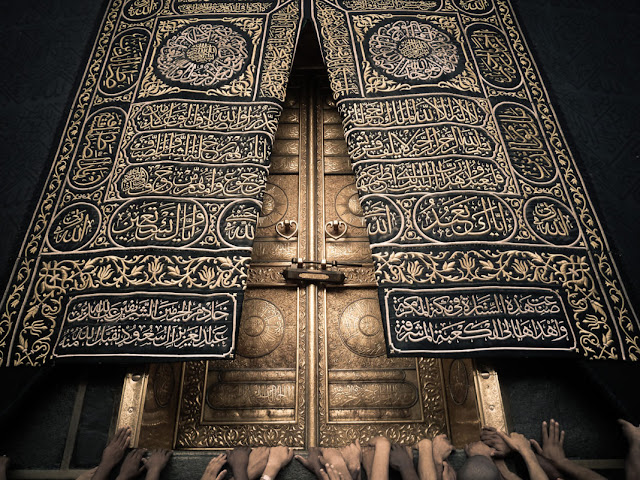
It is now clear as daylight: having Indian Muslims at each other's throats is an aspect of the larger project against them. Much of it is done with a lot of subtlety including through hired guns for deniability. One such hired gun, claiming to be a Shia, released a book this month and in the process revealed the hand of his sponsors by making some incendiary and
unpublishable comments against Islam and the Prophet amid usual open calls for violence against Muslims. He got an instant pat on the back from his patrons but in the process ended up exposing himself for a Shia is defined by her devotion to the prophet and his family.
The Prophet, for Shias, tops the group of sanctified Chahardah Masum (14 immaculate from sin, or infallible). It includes the Prophet's daughter, Fatima, son-in-law, Imam Ali, grandsons, Hasan and Hussain, and Hussain’s descendants over the next nine generations, who became the subsequent 11 imams. The Shias invoke them in prayers; commemorate their birth and death anniversaries and make pilgrimages to their tombs. The visits are second in importance only to the Hajj to Mecca. Muhammad al-Mahdi, the last of the 12th revered as a divinely-guided redeemer, is believed to have disappeared in 872 to return to ensure justice and equality before the end of the world.
Unlike the Sunnis, Shias believe Ali was the only rightful successor to the Prophet, who was not supposed to only succeed him as the leader but was to have a special relationship with God too.
Shias believe, Ali, the first male convert to Islam, and his descendants were endowed with this quality. For them, Ahl al-Bayt, or the people of the Prophet’s household, were divinely favoured to help people strengthen their bond with God and live as per the inner truths of religion. As the inheritors of the Prophet’s spiritual qualities, Ali and his descendants are believed to have the abilities to understand the deeper meaning of religious teachings as opposed to their outward manifestations. They are known as nur-e-Muhammadi, or the bearers of the Prophet’s light, as well as his trustees ‘privy to his esoteric and religious knowledge.’
Shias see it as a blessing to be buried near the tombs of Ahl al-Bayt; it is believed to lead to a faster passage to the afterlife. Nothing exemplifies devotion to Ali more than the ever-expanding warren of mausoleums and graves in the Wadi al-Salaam (Valley of Peace) graveyard near his shrine in Iraq's Najaf. Shias covet the burial there; they believe anybody interred in the cemetery will be raised from the dead with Ali on the judgment day. They have for centuries willed to be buried in the graveyard closest to their spiritual leader, making it perhaps the largest cemetery with an estimated five million graves. Burial chambers as big as that of small houses, graves of baked bricks, and plaster rise at different levels as far as the eye can see across the 1,500-acre graveyard. They sprawl over an area equal to 900 rugby fields from Najaf’s centre to the far north-west. Accounting for the city’s 13% area, Wadi al-Salaam is the only cemetery in the world where the burials have continued for over 1,400 years.
Sameer Arshad Khatlani is an author-journalist based in New Delhi. He has been a Senior Assistant Editor with Hindustan Times, India’s second-biggest English newspaper. Khatlani worked in a similar capacity with The Indian Express, India's most influential newspaper known for its investigative journalism, until June 2018. Born and raised in Kashmir, he began his career with the now-defunct Bangalore-based Vijay Times in 2005 as its national affairs correspondent. He joined Times of India, one of the world's largest selling broadsheets, in 2007. Over the next nine years, he was a part of the paper's national and international newsgathering team as an Assistant Editor. Khatlani has reported from Iraq and Pakistan and covered elections and national disasters. He received a master’s degree in History from the prestigious Jamia Millia Islamia University in New Delhi. Khatlani is a fellow with Hawaii-based American East-West Center established by the US Congress in 1960 to promote better relations and understanding with Asian, and Pacific countries through cooperative study, research, and dialogue.
Penguin published Khatlani’s first book The Other Side of the Divide: A Journey into the Heart of Pakistan in February 2020. Eminent academic and King’s college professor, Christophe Jaffrelot, has called the book ‘an erudite historical account... [that] offers a comprehensive portrait of Pakistan, including the role of the army and religion—not only Islam’.






Comments
Post a Comment
Post your comments